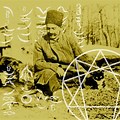








When is Epiphany 2023? The date, meaning of Twelfth Night and traditions behind the feast day explained
On Friday 6 January many Christians will celebrate Epiphany – a feast day that has different meanings depending on the church you follow.
This date is preceded by Twelfth Night, considered the end of the Christmas period, and the day on which many take their trees and decorations down.
Here’s everything you need to know about the Epiphany, Twelfth Night, and how they are celebrated.
What is Epiphany?
Epiphany is a Christian feast day that always falls on 6 January.
It originated in the East where Christians celebrate the birth and baptism of Jesus. It is known as Theophany in the Eastern Orthodox tradition.
The Western Church began following it in the 4th century as the day the wise men were led by the star to visit baby Jesus, according to the story of the Nativity.
According to the Bible and to the Gospel of Matthew, the three wise men called Melchior, Caspar and Balthazar were drawn across the desert to meet the baby Jesus by the star of Bethlehem, and came bearing gifts of gold, frankincense and myrrh.
Protestant churches celebrate Epiphany as a season until Ash Wednesday, but in Roman Catholicism it is celebrated as a single day.
How Epiphany is celebrated varies depending on cultural beliefs and traditions, but in many countries it is a time to eat well and put away your Christmas decorations.
In France, people celebrate Le Jour des Rois, The Day of Kings, and children and adults enjoy la galette des Rois – or cake of kings. A tradition exists where the youngest of the family will go under the table and attribute each slice to someone randomly.
In Spain and some Latin American countries the holiday is marked with parades and another day off work.
In the Eastern Orthodox Christian religion, Christmas is celebrated on the date of Epiphany.
What is Twelfth Night?
The observance of Twelfth Night is widely considered to mark the coming of the Epiphany.
Different Christian traditions define the date of Twelfth Night as either the 5 or 6 of January, depending in part on how the 12 days of Christmas are calculated.
For many, Christmas Day marks the “first day”, which would give Twelfth Night its earlier date, while others believe the 12 days of Christmas begin on Boxing Day.
Matters are further confused by the consideration of whether Twelfth Night concludes the 12th day after Christmas itself, or falls the evening before.
But Professor Nick Groom, of the English department of the University of Exeter, who has researched Christmas traditions, concludes: “Twelfth Night is Twelfth Day’s Eve – we still talk about Christmas Eve as being Christmas Night.”
By that basis, Twelfth Night in 2023 would fall on Thursday 5 January this year.
Why do people take their Christmas decorations down on Twelfth Night?
According to tradition, Christmas trees and decorations should be taken down on either Twelfth Night or Epiphany to avoid bad luck after the season of merriment.
The belief has developed in modern times, with Professor Groom explaining: “It was basically the Victorians who decided that Christmas decorations should be taken down after 12 days because they wanted to get everybody to work.
“They fixed it as the season of Christmas in the 19th century.”
Indeed, before this unfortunate abridging of the festive season, the Tudors continued celebrating until 1 February.
This date marked the eve of Candlemas, a Christian festival marking the day the infant Jesus was presented to the God in the Temple at Jerusalem.
Reference: Story by Alex Finnis • Yesterday 16:27
Articles-Latest
- Koran burning conviction sparks fury as blasphemy law 'returns to UK'
- Robert Francis Prevost - Pope Leo XIV
- Pope Francis' death follows recent health challenges. Here's what we know about how he died.
- Easter April 2025 - international Celebrations
- The Rule of the twelve psalms -Worthy is the Lamb
- Religion in Africa Before Christianity and Islam
- 6 The Origin of Yahweh
- Dumo Di Milano
- What Did the Crow Tribe Believe In: Discover The Beliefs!
- 7 Reasons Historic Christianity Rejects the Book of Enoch
- 8 Breathtaking Mountain Monasteries Around the World
- Ethiopian Bible is oldest and most complete on earth
- Muhammad Muhammad was a prophet and founder of Islam.
- World Day of the Poor – SVP Christmas Campaign 2024
- Pope Francis to open 5 sacred portals on Christmas Eve — for a ritual that’s never been done before
- The 144,000 in Revelation
- Over 73 dead bodies 'used for meditation', 600 crocs in a pond, found in two Thai temples
- Occultism: Western Occult Tradition
- What is a Mudra
- Blood Sacrifices: Ancient Rituals of Life and Death
Articles-Most Read
- Home
- Let There Be Light
- Plants that feel and Speak
- The Singing Forest
- The Singing Forest-2
- Introduction
- Meditation
- Using Essential Oils for Spiritual Connection
- Heaven Scent
- Plants that Feel and Speak-2
- Purification
- Making the Spiritual Connection
- Anointing
- Essential Oils: The unseen Energies
- The Sanctity of Plants
- The Aroma Of Worship - Introduction
- The Aroma Of Worship-Foreward
- Methods Of Use
- Spiritual Blending
- Handling and Storage







